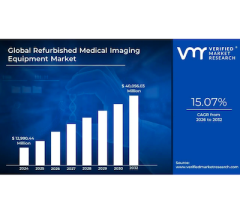
Stephen Chun, M.D. Image courtesy of The University of MD Anderson Cancer Center
September 13, 2023 — Intensity-modulated radiation therapy (IMRT) should be the preferred choice when treating patients with locally advanced non-small cell lung cancer (NSCLC), as it reduces radiation exposure to the heart and lungs, according to researchers at The University of Texas MD Anderson Cancer Center.
Results from a long-term secondary analysis of the NRG Oncology-RTOG 0617 Phase III study, with a median follow-up of 5.2 years, revealed that patients receiving IMRT had a more than two-fold reduction in severe lung inflammation (pneumonitis) compared to those who received 3D-conformal radiotherapy (3D-CRT), 3.5% versus 8.2%.
The findings were presented today at the International Association for the Study of Lung Cancer 2023 World Conference on Lung Cancer by Stephen Chun, M.D., associate professor of Radiation Oncology.
“IMRT spared more normal tissue than 3D-CRT, which translated into a clinically meaningful benefit to patients,” Chun said. “Despite historical concerns of IMRT generating a low-dose radiation bath to a large area of normal lung tissue, we found no excess cancers, increased adverse events or survival detriment over the long term related to this approach.”
For decades, 3D-CRT has been the standard of care for locally advanced lung cancer when surgery is not an option. However, it is less precise than IMRT, which sculpts and molds radiation beams to tumor targets, reducing radiation exposure to certain organs.
The NRG Oncology-RTOG 0617 study enrolled 482 NSCLC patients from 2007 to 2011 and compared a high dose of radiation (74 Gy) to a standard dose (60 Gy). All patients underwent concurrent chemotherapy (carboplatin/paclitaxel, with or without cetuximab) and either 3D-CRT (53%) or IMRT (47%).
Although patients treated with both techniques had similar survival rates, closer inspection of the data demonstrated a correlation between survival and radiation exposure to the heart. IMRT treatment plans achieved significantly lower cardiac radiation doses.
Both the 3D-CRT and IMRT groups had similar rates of new cancer development over time. Scientists also saw no evidence that age impacted survival, meaning that age is no reason to exclude elderly patients from curative-intent chemoradiation for locally advanced NSCLC.
“The data from our study makes a compelling argument that we should use IMRT for locally advanced lung cancer. As a randomized clinical trial comparing 3D-CRT and IMRT is unlikely to be performed, this study represents the strongest prospective evidence we will ever have in support of IMRT,” Chun said.
This trial was funded by the National Cancer Institute (R50CA275822, U10CA21661, U10CA180868, and U10CA180822), Bristol Myers Squibb and Eli Lilly and Company. Chun reports financial relationships with Curio Science, Norton Healthcare, AstraZeneca, Binaytara Foundation, Henry Ford Health, Hong Kong Precision Oncology, ViewRay, the American Board of Radiology and the Japanese Society for Radiation Oncology. A full list of collaborating authors can be found with the abstract here.
For more information: https://www.mdanderson.org/


 February 04, 2026
February 04, 2026 









